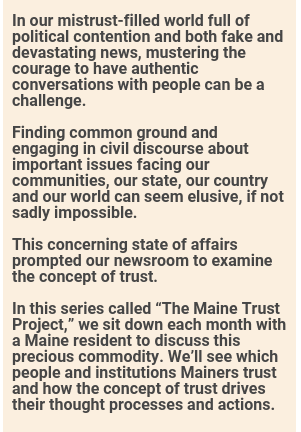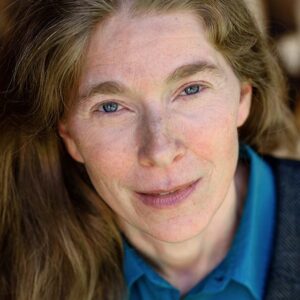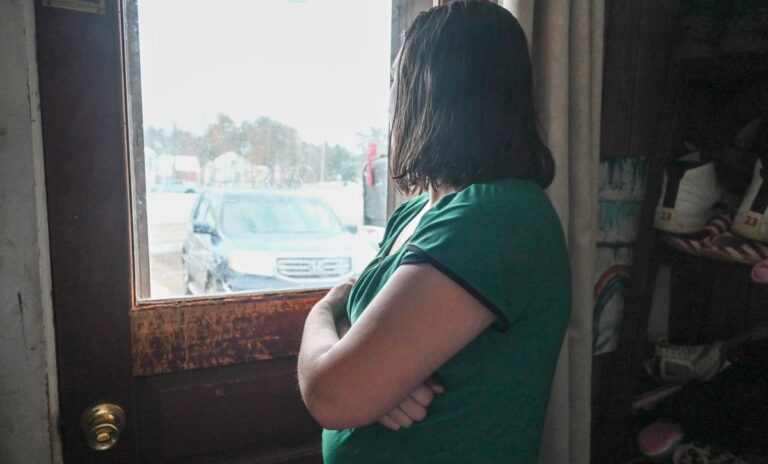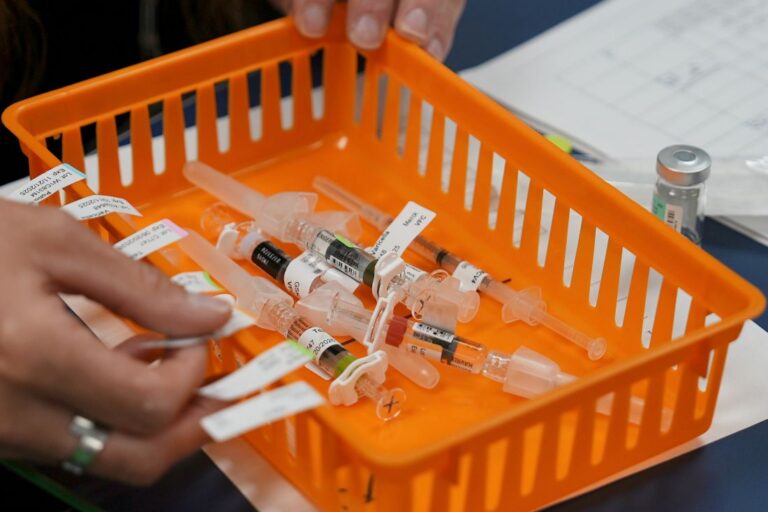By most standards, Owen J. Logue — O.J. to his friends — has had a remarkable life: He is a champion athlete who had a 30-plus-year career in higher education as a teacher and administrator, he founded a running camp for youth athletes and currently serves as the executive director of the Maine Educational Center for Deaf and Hard of Hearing/Governor Baxter School for the Deaf in Falmouth.
It was his parents’ trust in God, and in him, that set the spark in O.J. to prove the many naysayers he’s encountered wrong — even when the doubter was himself, because for a good chunk of his life, O.J. felt like a fake.
Of the four children born to Joan, a nurse, and Joe, a traveling salesman who sold coffee products, only O.J., their third child, was born deaf as a result of his parents’ Rh factor incompatibility. By age 5, he spoke only 20 words, no sentences.
 His parents looked into enrolling him at the Maine School for the Deaf (now called the Governor Baxter School for the Deaf), which recently had opened, but at the time it only offered an American Sign Language-based program. O.J.’s parents were determined that he would be able to communicate orally.
His parents looked into enrolling him at the Maine School for the Deaf (now called the Governor Baxter School for the Deaf), which recently had opened, but at the time it only offered an American Sign Language-based program. O.J.’s parents were determined that he would be able to communicate orally.
His parents and siblings — his mother especially — made huge sacrifices to help him learn to speak and get him an education at a time when special education support was nonexistent in the public school system. His mother gave up her career as a nurse to care for O.J. and serve as his advocate. She endured and shielded O.J. from negative treatment by people who were not accepting of disabilities.
The efforts his family made buoyed him, providing him with safety and love, but outside that circle he felt like a phony.
“There was a sense of: I’m not worthy of this,” he said. “A lot of people didn’t want me to go to college. They didn’t think I would make it. I almost flunked out my first semester and I began to wonder if everybody was right. But I just said ‘no, I’m not going to give up on myself.’ So somehow I began to trust my potential, and that was a big turning point.”
Part of that transformation was an acceptance of his deafness. Through high school and into college, he tried to hide his deafness from those outside his family. “I didn’t want people to know that I was deaf,” he said. “I denied my deafness severely.”
He didn’t tell people he was deaf and wore his hair long so his hearing aids were covered. People assumed he was British because he talked differently.
“I faked a lot of it,” he said. “Maybe it came down to I couldn’t trust others to accept me for who I am – that my differences were too remarkably different for them and I would be rejected.”
But a series of experiences in his 20s – particularly representing the United States as a runner at the 1981 Deaflympics in what was then West Germany – were transformative. When he made the team, he said, his life changed.
“It did a lot to help me find who I am,” he said. “The realization came that I no longer had to … pretend that I’m not deaf. Once I got past that and I started telling people I was deaf … it transformed my whole life. It gave me clarity about who I am and what my life goals and pursuits should be.”
Ever since, he’s endeavored to be a role model not just for deaf and hard-of-hearing youth but for students and youth athletes from all walks of life and all abilities. And when those he mentors ask how they can repay him? “I say … there’ll be a day when you can pay it forward. That’s all I want.”
Q&A
Who meets your definition of trust?
Owen: Obviously my family, especially my parents and siblings because we overcame so much adversity together. They wanted to do whatever it took to get me what I needed.
How is trust perceived in the deaf and hard-of-hearing community?
Owen: I think there’s a little holding back, a little more cautiousness about trusting. There was a time when it was frowned upon if you, say, dated a hearing person. The pressure for a deaf person to marry another deaf person was crazy. Many years ago, when I was dating a hearing woman, I was challenged: “Why would you even consider anyone outside the deaf community? You know you can’t trust them. They will only tell you what they want you to know.” I was kind of taken aback by that. But I do get it. Especially for those in the community who have been victims of abuse.
Who doesn’t meet your definition of trust?
Owen: Those who bully and intimidate others. You can do things like lay people off in humane and caring ways instead of being ruthless. I don’t relate to those people. I just want people to be kind to each other.
What breaks trust for you?
Owen: Demonstrating a lack of moral compass. Seeing something happening that is immoral and not stepping up to stop it. I realize it takes great personal courage to stand up for something, but I hope that people can be courageous and stand against injustices.
Can broken trust be healed and if so, what has to happen for healing to take place?
Owen: I do believe so. You have to be able to let go of the pain and forgive. I once was in an employment situation where I was egregiously, unjustly treated. It was very painful for me, and I really couldn’t let go of it. My daughter got tired of listening to me and told me that holding onto my pain wasn’t healthy and wasn’t helping me. She said I needed to let it go. It was the best advice she ever gave me. I wrote letters to two of the individuals involved in the situation, and I wrote to them as if I was accepting apologies from them. They never actually apologized to me, but I wrote to them telling them how much they had hurt me and how what they had done had impacted me. Then I told them both that I forgave them. I never got any acknowledgement back from either one, but I didn’t care. It really helped me to heal and let go of a very painful hurt and move on.
Has your definition of trust changed over the years?
Owen: Yes. As I’ve said, I trust people to be good and do good things, so I didn’t think the kind of horrific abuse that happened in institutional settings like the Catholic church, or here at Governor Baxter School for the Deaf, could happen. I was just shocked. The reality of that abuse has tempered my definition of trust. It’s very disturbing to read the old reports about how this abuse went on for many, many years here at Baxter. And then in the aftermath, the statute of limitations had passed and none of the individuals could be tried; none became registered sex offenders; none went to prison. They went on with their lives. So I am hypervigilant that abuse will never happen on my watch. And it’s a priority for me to help heal the trust that was broken here and move people toward healing.
Do you think the cultural definition of trust has changed over the years?
Owen: Yes, I think so. The days appear gone when open conversation over coffee at the general store can occur without fear of being unfriended, either personally or on Facebook. I live on Mount Desert Island. It’s a small community. You used to be able to go to the coffee shop to talk to your friends and neighbors. You could be, say, a Trump supporter, and talk to someone who isn’t and at the end of the day still be good friends. But no more. You can’t have discourse. The shift has been dramatic, and I’m personally not liking that. I’m saddened that friends are unfriending each other over differing opinions. I find it really disturbing, and I don’t know that’s ever going to come back around again.
What worries you?
Owen: I worry about affordable housing and homelessness and the opioid addiction epidemic. I just don’t know how this generation can afford housing. I know the economy is good, but it doesn’t make sense that it can continue. And opioid addiction – wow – it’s horrible, horrible. So many people who have died or are probably going to die. It scares me greatly.
What inspires you?
Owen: The incredible people making a difference in the lives of deaf and hard-of-hearing children inspire me. We have an incredibly vibrant program here called Kids Like Me. When I was a child, I only knew seven other deaf children, so I didn’t have anyone to identify with. With our Kids Like Me program, we introduce all the deaf and hard-of-hearing children statewide to each other so they never have an experience like mine. I feel incredibly fortunate to be in this environment. What we’re doing is changing lives.
Get to know Owen Logue
Age: 64
Hometown: Southwest Harbor
Religious affiliation: Catholic
Political affiliation: Independent
How he describes himself: I’m an incredibly positive person who strives to inspire others to make a difference in the lives of people every day. I’m an overachiever whose internal flame to keep striving never dies. I am a person with an incredible sense of purpose.
How he defines trust: Trust to me is believing in the goodness in others. Some people think I’m too naive and trust people too much, but I’d rather be too trusting than not.







